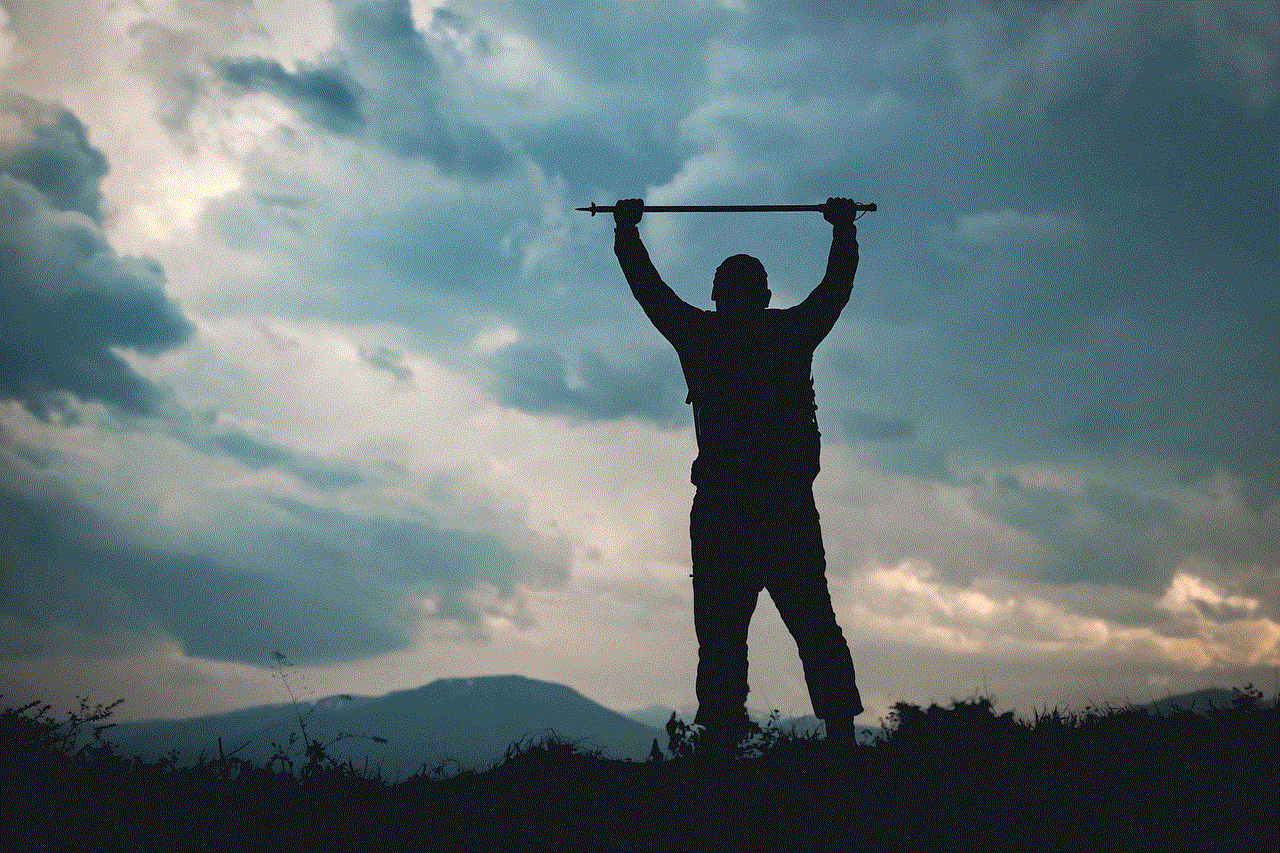facebook people you may know stalking 2022
In today’s digital age, social media has become an integral part of our lives. One of the most popular social media platforms is facebook -parental-controls-guide”>Facebook , with over 2.8 billion active users worldwide. With such a vast user base, it is no surprise that Facebook has become a breeding ground for connecting with people from all walks of life. However, one feature on Facebook that has sparked controversy and intrigue alike is the “People You May Know” section. This section suggests potential friends to users based on mutual friends, common interests, and other factors. But, have you ever wondered how accurate these suggestions are? And is it possible that Facebook is actually stalking us through this feature? In this article, we will delve deep into the topic of “Facebook People You May Know Stalking 2022” and uncover the truth behind this controversial feature.
Firstly, let’s understand how the “People You May Know” section works. Facebook’s algorithm uses a combination of factors to suggest potential friends to users. These include mutual friends, common interests, location, workplace, and educational background. Additionally, if you have synced your contacts with Facebook, the platform also suggests people from your phonebook. This algorithm is constantly evolving, and with the advancements in artificial intelligence, it is becoming more accurate by the day. However, this also raises the question of how much access Facebook has to our personal information and whether it is using this data to track our every move.
One of the most significant concerns surrounding the “People You May Know” feature is the accuracy of its suggestions. Many users have reported receiving suggestions for people they have never met or have no connection with whatsoever. This has led to speculations that Facebook is using our data, including our location, search history, and even messages, to track and suggest potential friends. In 2018, a report by Gizmodo revealed that Facebook was using location data to suggest potential friends to its users, even if they had turned off their location services . This raised serious privacy concerns, and Facebook was quick to deny these allegations. However, it is difficult to ignore that the suggestions in the “People You May Know” section often seem too accurate to be a mere coincidence.
Another aspect of the “People You May Know” feature that has raised eyebrows is its ability to suggest potential friends based on our offline interactions. For instance, if you have attended a conference or an event, and exchanged contact information with someone, Facebook may suggest them as a potential friend. This has led to concerns that the platform is using our data to track our offline interactions as well. With the rise of facial recognition technology, it is not difficult to imagine that Facebook may be using this to track our movements and interactions in the real world.
Moreover, the “People You May Know” feature has also been accused of suggesting potential friends based on our private messages. In 2018, a Facebook user shared a screenshot of a suggestion for someone they had never interacted with on the platform, but had exchanged private messages with on WhatsApp. This raised questions about the extent of Facebook’s data collection and whether it was using our private conversations to suggest potential friends.
While Facebook has continuously denied these allegations and claims that the suggestions in the “People You May Know” section are purely based on mutual connections and interests, it is difficult to ignore the accuracy of these suggestions. With the amount of data that Facebook has access to, it is not far-fetched to believe that the platform is using it to track our every move and recommend potential friends accordingly.
Furthermore, the “People You May Know” feature has also been criticized for its potential to reveal sensitive information about our lives. For instance, if Facebook suggests someone as a potential friend, it can be assumed that we have some sort of connection with them, whether it is through mutual friends or interests. This can be problematic for individuals who may not want certain people to know about their personal lives or past relationships. Moreover, it can also lead to awkward situations if the suggested person turns out to be someone we have had a falling out with or have intentionally tried to distance ourselves from.
In addition to these concerns, the “People You May Know” feature has also been accused of promoting cyberstalking. With the rise of social media harassment and cyberbullying, this feature can be used by individuals with malicious intent to track and harass their targets. Moreover, it can also lead to the exposure of sensitive information, such as our location, to people we may not want to have access to it. This can be especially dangerous for vulnerable individuals, such as victims of domestic violence or stalking.
Despite these concerns, Facebook has made little effort to address them. The platform has continuously denied any allegations of stalking its users and claims that the “People You May Know” feature is solely based on mutual connections and interests. However, the accuracy of these suggestions and the numerous reports from users raise serious doubts about the platform’s intentions.
In conclusion, the “People You May Know” feature on Facebook has sparked controversy and concerns about the platform’s data collection and privacy policies. While Facebook continues to deny any allegations of stalking its users, the accuracy of its suggestions and the numerous reports from users suggest otherwise. With the advancements in technology, it is becoming increasingly difficult to protect our privacy online. It is up to us, as users, to be cautious about the information we share on social media platforms like Facebook and to be aware of the potential consequences of our online interactions. As for the “People You May Know” feature, only time will tell if Facebook will address the concerns surrounding it or continue to use it as a tool to track and suggest potential friends to its users.
who checked my facebook profile
In today’s digital age, social media has become an integral part of our daily lives. We use it to connect with friends and family, share our thoughts and experiences, and even showcase our talents and skills. One of the most popular social media platforms is Facebook, with over 2.8 billion active users worldwide. With such a massive user base, it’s no wonder that people are curious about who is viewing their profiles. This curiosity has led to the popular search query, “who checked my Facebook profile.”
There are various reasons why people would want to know who has been checking their Facebook profile. Some may be looking for validation or attention, while others may be concerned about their privacy and security. Whatever the reason may be, the idea of being able to see who has been viewing your profile is intriguing. In this article, we’ll delve deeper into the concept of “who checked my Facebook profile” and explore whether it is possible to know who has been visiting your profile.
To start, let’s first understand how Facebook works. When you create a Facebook account, you are required to provide personal information such as your name, email address, and date of birth. Once your account is set up, you can start adding friends and sharing content. Every time you post something on your profile, it appears on your friends’ newsfeed, and they can also interact with your posts by liking, commenting, or sharing them. This interaction is what makes Facebook such a popular platform – the ability to connect and engage with others.
Now, when it comes to checking who has viewed your profile, there is no straightforward way to do so on Facebook. Unlike other social media platforms like Instagram or LinkedIn, Facebook does not have a feature that shows you who has visited your profile. However, this hasn’t stopped people from trying to find ways to uncover this information. A quick Google search will show you various articles and videos claiming to have the answer to the question, “who checked my Facebook profile.”
One common method that people use is by using third-party apps or browser extensions. These apps and extensions claim to have access to your profile’s “hidden” data and can show you a list of people who have viewed your profile. However, it’s essential to be cautious when using these apps as they are not endorsed by Facebook and can compromise your account’s security. Some of these apps may also require you to pay a fee to access the information, which is a red flag. It’s best to avoid using these apps altogether and not risk exposing your personal information.



Another method that people try is by manually checking their profile’s source code. This method involves right-clicking on your profile and selecting “View Page Source.” This will open the page’s HTML code, which can be overwhelming for those who are not familiar with coding. Users believe that by searching for certain keywords within the code, they can find a list of people who have viewed their profile. However, this method is not reliable and can also be time-consuming.
So, is there any way to know who has checked your Facebook profile? The short answer is no. Facebook has made it clear that they do not allow any third-party apps or extensions to access users’ profile information. The platform’s privacy policies state that they do not share your personal information with anyone, including who has viewed your profile. Therefore, anyone claiming to have an app or method to show you who has checked your profile is most likely a scam.
But why doesn’t Facebook have a feature that shows who has viewed your profile? The simple answer is privacy. Facebook’s business model is based on targeted advertising, which means they collect data from your profile and online activities to show you personalized ads. If they were to allow users to see who has viewed their profile, it would be a violation of their privacy policies and could potentially harm their business. Additionally, Facebook also wants to protect its users’ privacy and prevent stalking or harassment by not providing this feature.
Some users may argue that they have seen a list of people who have viewed their profile through a Facebook feature called “People You May Know.” This feature suggests people for you to add as friends based on mutual friends, groups, and interests. However, this does not necessarily mean that those people have viewed your profile. Facebook uses an algorithm to suggest friends, and it is not based on profile views.
In conclusion, there is currently no way to know who has checked your Facebook profile. Any app or method claiming to do so is most likely a scam and should be avoided. Facebook values its users’ privacy and does not allow access to personal information, including who has viewed your profile. Instead of trying to find ways to see who has viewed your profile, it’s best to focus on creating meaningful connections and engaging with your friends and family on the platform. Remember, social media should be used as a tool to connect and share, not to obsess over who has viewed your profile.
can iphones get hacked
In today’s world, where technology rules and our lives are intertwined with our smartphones, the thought of our beloved iPhones getting hacked is a scary one. With the rise of cybercrime and the constant threat of data breaches, it’s no wonder that people are concerned about the security of their iPhones. But can iPhones really get hacked? In this article, we will delve deeper into this question and explore the vulnerabilities of iPhones and ways to protect them.
To understand the possibility of iPhones getting hacked, we first need to understand what hacking is. Hacking is defined as unauthorized access to a computer system or network, with the intention of stealing or manipulating data. In simpler terms, it means someone gaining access to your device without your knowledge or permission. With the increasing sophistication of hackers, it has become easier for them to exploit vulnerabilities in devices, including iPhones.
One of the main reasons why iPhones are considered more secure than other smartphones is because of its closed ecosystem. Apple tightly controls the software and hardware of their devices, making it difficult for hackers to find loopholes. However, this does not mean that iPhones are completely immune to hacks. In fact, there have been instances where iPhones have been hacked, and sensitive information has been compromised. Let’s take a closer look at some of the ways iPhones can get hacked.



One of the most common ways iPhones can get hacked is through phishing attacks. Phishing is a technique used by hackers to trick people into revealing their personal information, such as login credentials or credit card details. This can be done through emails, text messages, or even fake websites that look legitimate. Once a user falls for the trap and enters their information, the hacker gains access to their device and can steal sensitive data or install malware.
Another way iPhones can get hacked is through public Wi-Fi networks. Public Wi-Fi networks are convenient, but they are also notorious for their lack of security. Hackers can use these networks to intercept data being transmitted from your device, such as login credentials or credit card information. This is known as a man-in-the-middle attack, where a hacker positions themselves between your device and the website you are trying to access, allowing them to intercept any data being transmitted.
Physical theft is another way iPhones can get hacked. If an iPhone falls into the wrong hands, the hacker can easily access all the data stored on the device. With the use of advanced hacking tools, they can even bypass the device’s passcode and gain access to sensitive information. This is why it is essential to have a strong passcode and enable features like Find My iPhone, which allows you to remotely erase your data in case of theft.
One of the most concerning ways iPhones can get hacked is through software vulnerabilities. Like any other software, the iOS operating system that runs on iPhones is not perfect, and it can have vulnerabilities that hackers can exploit. These vulnerabilities can be used to install malware on the device, giving the hacker access to all the information stored on it. In most cases, Apple is quick to release software updates that patch these vulnerabilities, so it is crucial to keep your device up to date.
Apart from these ways, there are also other techniques that hackers can use to gain access to your iPhone. For instance, they can use brute force attacks to crack your passcode, or they can exploit your device’s Bluetooth or NFC capabilities. The bottom line is that iPhones, like any other device, are not entirely secure, and they can be hacked if the right measures are not taken.
So, what can you do to protect your iPhone from getting hacked? The first and most crucial step is to ensure that your device is always up to date. As mentioned earlier, Apple regularly releases software updates that fix any vulnerabilities in the iOS operating system. These updates also include security patches that make it difficult for hackers to exploit any flaws in the system.
Another important step is to be cautious when it comes to clicking on links or downloading attachments from unknown sources. As mentioned earlier, phishing attacks are one of the most common ways hackers can gain access to your device. Therefore, it is essential to be vigilant and not fall for any traps.
Enabling features like two-factor authentication can also add an extra layer of security to your iPhone. Two-factor authentication requires you to enter a code sent to your device or email before accessing an account, making it difficult for hackers to gain unauthorized access.
It is also advisable to use a virtual private network (VPN) when connecting to public Wi-Fi networks. A VPN creates a secure and encrypted connection between your device and the internet, making it difficult for hackers to intercept any data being transmitted.



Lastly, it is essential to use strong and unique passwords for all your accounts and enable biometric authentication, such as Touch ID or Face ID, on your device. This makes it difficult for hackers to bypass your passcode and gain access to your device.
In conclusion, while iPhones have a reputation for being secure, they are not immune to hacks. With the increasing sophistication of hackers, it is crucial to take the necessary precautions to protect your device and sensitive data. By being vigilant and following the steps mentioned in this article, you can minimize the risk of your iPhone getting hacked. Remember, prevention is always better than cure when it comes to cybersecurity.